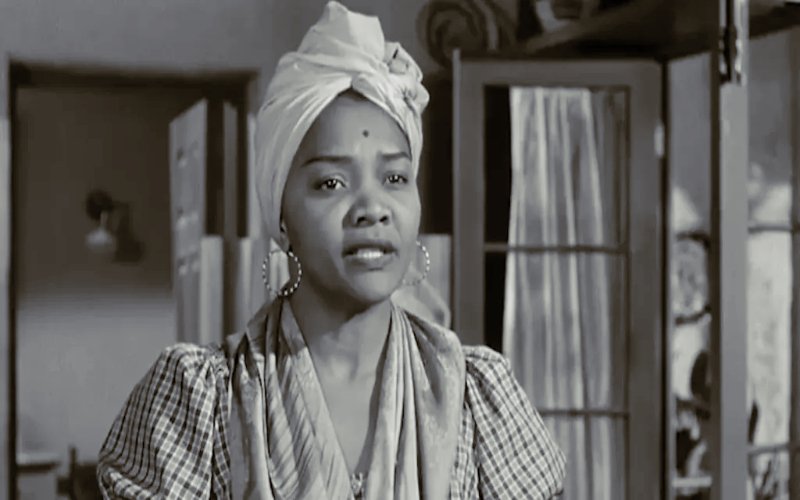Juanita Moore: Net Worth, Legacy & Hollywood Impact
Who was Juanita Moore, and why does her name still resonate in Hollywood decades after her most celebrated role? Juanita Moore wasn't just an actress; she was a pioneer who shattered barriers and left an indelible mark on the film industry, paving the way for future generations of African American performers.
Born on October 19, 1914, in Greenwood, Mississippi, Juanita Moore's journey to Hollywood was a testament to her resilience and talent. Entering the film industry in the early 1950s, she faced a landscape where opportunities for Black actors were scarce. Yet, Moore persevered, and her dedication to her craft eventually led her to critical acclaim and recognition. Her story is a powerful reminder of the struggles and triumphs of Black actors during a time when representation was severely limited.
Moore's contributions extended beyond her on-screen performances. She became an emblem of hope and inspiration, representing the potential of Black artists to thrive in an environment that often marginalized them. Her legacy serves as a call to action, challenging the industry to continue its work of inclusivity and authentic storytelling.
- Alice Rosenblum Watch Discover Cam Leaks Hot Content
- Lara Rose Birch Leaks What You Need To Know Latest Updates
| Category | Details |
|---|---|
| Full Name | Juanita Moore |
| Date of Birth | October 19, 1914 |
| Place of Birth | Greenwood, Mississippi, United States |
| Known For | "Imitation of Life" (1959) |
| Academy Award Nomination | Best Supporting Actress (1959) for "Imitation of Life" |
| Era of Activity | Early 1950s onwards |
| Notable Films |
|
| Role in "Imitation of Life" | Played Annie Johnson, mother of Sarah Jane, alongside Lana Turner. |
| Impact | One of the few Black actors to be recognized during her time; paving the way for other African-American actresses. |
| Legacy | Trailblazer for Black actors in Hollywood, inspiring future generations. |
| Net Worth Estimate | $1 million to $5 million (as of estimations) |
| Reference | IMDB |
Juanita Moore's fame is intricately linked to her role in the 1959 film, "Imitation of Life," a movie that delved into complex themes of race, identity, and motherhood. Playing Annie Johnson, the mother of Sarah Jane, opposite Lana Turner, Moore delivered a performance that resonated with audiences and critics alike. The film itself was a major success, and Moore's portrayal earned her a Best Supporting Actress nomination at the Academy Awards. This nomination was particularly significant. She was the fifth Black actor to be recognized in any category, and the third in the supporting actress category. At the time, only one Black actor, Hattie McDaniel for "Gone with the Wind" (1939), had ever won an Oscar. This nomination itself was a watershed moment, representing a significant step forward for Black representation in Hollywood.
The role of Annie Johnson allowed Moore to showcase her exceptional acting range, capturing the depth of her characters emotions and struggles. She was able to portray the nuances of a mother's love, sacrifice, and the challenges of living in a racially divided society. Her portrayal was not only moving but also insightful, offering a glimpse into the realities faced by African Americans during that period. The film's success and Moore's nomination helped to elevate the conversation about race and representation within the film industry, contributing to a growing awareness and social consciousness.
The 1950s were a challenging time for Black actors. The roles available to them were often limited and stereotypical, and significant recognition was rare. Moore entered the film world during this era and, like other Black performers, faced many obstacles. Nevertheless, she gradually began to see an improvement in the quality of her roles, as Hollywood started to develop a greater social awareness toward the end of the decade. Despite these limitations, Moore's talent shone through, proving that Black actors could achieve success in a predominantly white industry. Her career trajectory is an important part of Hollywood history, mirroring the changing social dynamics and the struggle for equality within the entertainment world.
- Emily Compagno Peter Riley Are They Still Married
- Alice Rosenblum Onlyfans Photos Videos More Discover Now
Beyond "Imitation of Life", Juanita Moore's career includes appearances in other films, as well as television. Although the roles available to Black actors were not always plentiful, Moore worked consistently, demonstrating her commitment to her craft and her resilience in navigating a sometimes-restrictive environment. These roles, while perhaps not as widely celebrated as her role in "Imitation of Life," further solidified her legacy as a versatile and respected performer. Even during times when opportunities were scarce, Moore was always working, a testament to her dedication.
While assessing the net worth of Juanita Moore, it's important to understand the limitations. It's challenging to determine an exact figure, especially given the period she worked in and the privacy surrounding financial matters. However, estimates range from $1 million to $5 million. This estimation includes her film earnings, television work, and any investments she made throughout her career. Whatever the specific numbers, her financial success reflects her dedicated career and her contribution to the world of entertainment. These estimations serve as a reminder of the financial realities of the time, the opportunities available, and the lasting impact of her work.
Understanding Juanita Moore's net worth is interesting, but her real legacy lies in the impact she had on future generations of actors and actresses. She broke barriers, proved the potential of Black performers, and inspired countless individuals to pursue their dreams. Her accomplishments are a call to action, and they are a testament to the power of representation, resilience, and the enduring legacy of her contribution to the film industry.
Juanita Moores story is an important reminder of the history of Hollywood and the struggles for diversity and inclusion. As we reflect on her achievements, we celebrate her as a trailblazer. Her work is important to recognize the changing social dynamics of the entertainment industry. Her career is a legacy, and her influence will always be present in the hearts and minds of those who admire her contributions.
Article Recommendations
- Abby Berner News Pics Leaks Social Media Updates Whats New
- Easy Pillsbury Sugar Cookie Dough Recipes Delicious Ideas



Detail Author:
- Name : Prof. Arianna Kuvalis MD
- Username : mayert.humberto
- Email : emard.carolyn@ledner.info
- Birthdate : 1970-02-17
- Address : 746 Gusikowski Turnpike Kundeport, SD 04326-1406
- Phone : 1-678-231-2135
- Company : Keebler, Satterfield and Haley
- Job : Professor
- Bio : Laudantium facere et dolor velit ea quibusdam vel id. Modi quibusdam optio vero voluptas. Est quasi iusto eligendi et veritatis eos iure. Ut quis ut labore deserunt vero.
Socials
linkedin:
- url : https://linkedin.com/in/nathaniel_ondricka
- username : nathaniel_ondricka
- bio : Autem commodi quis id voluptates pariatur.
- followers : 3631
- following : 2317
tiktok:
- url : https://tiktok.com/@ondricka1992
- username : ondricka1992
- bio : Officia reiciendis et harum inventore magnam omnis dolorem.
- followers : 2993
- following : 2334
facebook:
- url : https://facebook.com/ondrickan
- username : ondrickan
- bio : Omnis odio porro placeat. Expedita eligendi quae voluptas aut minus.
- followers : 6176
- following : 876